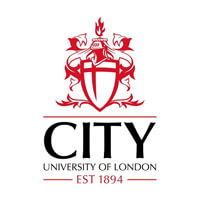fees waived
Computer Science with Games Technology, MSci (Hons)
City, University of London, United Kingdom
Subject ranking
UK / THE 2025 30th
UK / CUG 2024 37th
UK / Guardian 2025 38th
Costs
food & rentS$25.1K / year
Entry requirements
Scholarships
Limited quantity
Information
Code
Intakes
Website (External)
Programmes
Information
Duration
2029
This four-year integrated Master’s degree in Computer Science with Games Technology equips students for careers in the dynamic computer games industry. You will develop advanced expertise in game engine architecture, computer graphics, and design, while mastering programming languages and techniques essential for game development. The curriculum covers core topics across four years, including algorithms, Java, C++, advanced games technology, and electives like artificial intelligence. Benefits include enhanced employability through optional one-year placements with companies such as Sony and Microsoft, and access to state-of-the-art facilities, preparing you for Chartered Engineer (CEng) status.Assessment combines examinations, coursework, and projects, with a focus on practical skills like programming and problem-solving. The program is accredited by BCS, The Chartered Institute for IT, and includes opportunities for professional experience through the Professional Pathway Scheme, boosting career prospects in this thriving sector.
During this four-year Computer Science with Games Technology MSci course you’ll learn to solve real-world computer gaming challenges, using programming, problem-solving and communication skills. Year 1 Study our common first year for all our computer science students, learning six core topics including operating systems, web development and Java. -Introduction to Algorithms (15 credits) -Mathematics for Computing (15 credits) -Systems Architecture (15 credits) -Programming in Java (30 credits) -Databases (15 credits) -Operating Systems (15 credits) -Computer Science, Ethics & Society (15 credits) Year 2 Deepen your knowledge of computer science with core modules such as games technology and object-orientated analysis. Boost your professional skills with a team project. -Data Structures and Algorithms (15 credits) -Object-Oriented Analysis and Design (15 credits) -Professional Development in IT (15 credits) -Team Project (30 credits) -Games Technology (15 credits) -Programming in C++ (15 credits) -Computer Networks (15 credits) Year 3 Study advanced games technology, computer graphics and other core modules that are fundamental to games technology. Choose elective modules in areas that interest you. -Computer Graphics (15 credits) -Advanced Games Technology (15 credits) -Digital Signal Processing and Audio Programming (15 credits) -Functional Programming (15 credits) -Language Processors (15 credits) -Advanced Databases (15 credits) -Theory of Computation (15 credits) -Professional Placement and Career Development (30 credits) -Data Visualization (15 credits) -Advanced Programming: Concurrency (15 credits) -Cloud Computing (15 credits) -Information Security Fundamentals (15 credits) -Computer Vision (15 credits) -Introduction to Artificial Intelligence (15 credits) -Programming and Mathematics for AI (15 credits) -Agents and Multi Agents Systems (15 credits) -User Centred Systems (15 credits) -Project Management (15 credits) -Semantic Web Technologies and Knowledge Graphs (15 credits) Year 4 Develop in-depth professional expertise to prepare you for your career in game technology. Study core game development modules and undertake an individual project to showcase your skills. -The Games Development Process (15 credits) -Computer Games Architectures (15 credits) -Individual Project (45 credits) -Software Systems Design (15 credits) -User-centred Systems Design (15 credits) -Advanced Databases (15 credits) -Project Management (15 credits) -Data Visualisation (15 credits) -Advanced Programming: Concurrency (15 credits) -Advanced Algorithms and Data Structures (15 credits) -Information Security Fundamentals (15 credits) -Computer Vision (15 credits) -Introduction to Artificial Intelligence (15 credits) -Programming and Mathematics for Artificial Intelligence (15 credits) -Computational Cognitive Systems (15 credits) -Agents and Multi-Agent Systems (15 credits) -Cloud Computing (15 Credits) Students have the opportunity to follow two placement routes: a one year placement or the Professional Pathway scheme. The one year placement can be undertaken following successful completion of year 2. Students can join the Professional Pathway scheme after successful completion of year 1 (early entry) or after successful completion of year 2 or a one year placement (late entry).

